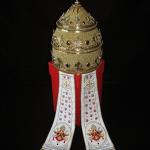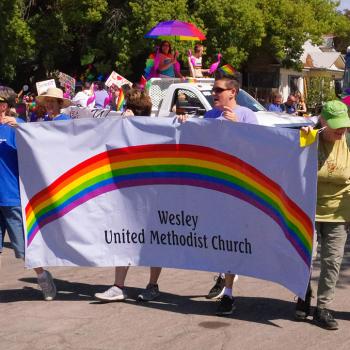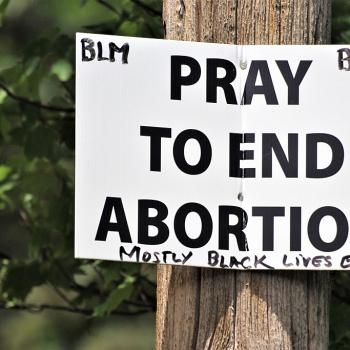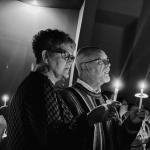We American Christians have it easy compared to our fellow believers in other parts of the world, so claims that we are “persecuted” are hard to take seriously. But Andrew Brunson, an American pastor and missionary to Turkey, was indeed persecuted, spending two years in a Turkish prison.
He thinks it is only a matter of time before American Christians will experience overt persecution. And he says it will take new high tech forms.
Rick Plasterer writes about this in his article for Juicy Ecumenism entitled Andrew Brunson Offers a View of Impending Persecution – Part 1, which reports on a talk Brunson gave at a Family Research Council conference.
I was most struck by Brunson’s assessment of why Christians are in a perilous cultural state. Consider [my bolds]:
People hostile to traditional Christianity have taken control of all major institutions, including “the news media, arts, entertainment industry, social media, professional sports, law, medicine, public health, Wall Street, corporate boardrooms, NGOs, universities, public schools, the administrative state, and even increasingly, the higher levels of military leadership.” The leadership of these institutions seek “to impose a progressive agenda on society.” It is not necessary for them “to be in the majority.” Instead, these elites have the most important platforms, the most widely disseminated public voices, “they control access to the high-tech professions,” and they administer the agencies of coercion (the military and federal law enforcement). “They own the levers of enforcement … they control the commanding heights of our society,” he said. These are not elective positions, “you can’t vote them out … [and] they are not your friends.” Christians need to recognize that “this is not a possible future; this is what we’re in now.”
Brunson, a pastor in the Evangelical Presbyterian Church, speaks of the differences he has seen in the United States between the time he left for Turkey in 1993 and when he was released from prison in 2018. In the 1990s, Christianity was seen as a “social good.” Christian morality was considered “normative,” even when it wasn’t followed. But now, it isn’t just that people don’t believe in Christianity or in Christian morality. Rather, they are considered harmful. Christian morality is “held to undermine the social good.” Christian sexual morality is “hateful [because] you make me feel uncomfortable, you make me feel unsafe, and hate has no rights … so you must be shunned, you must be punished.”
Getting involved in politics, Brunson thinks, is not going to do much. Already Christianity’s opponents “regard appeals to Biblical morality as ‘political,’ when in fact they are God’s eternal standards.”
Many Christians still have a majority mentality of affecting public policy, which may succeed in slowing down moral decline and anti-Christian hostility, “but I don’t believe we will be able to stop it.” But the real question is “how do we maintain obedience and faithfulness and the light of the gospel, when we are surrounded by darkness?” Christians will be a minority, and “a despised minority.”
Brunson sees two main areas of conflict: the doctrine that Christ is the only way to salvation, and moral issues: “Marriage, life, sexual morality, and gender identity.” He thinks the biggest issue that the principal line of attack will be the church’s stand on gender ideology.
Churches and Christians can expect more than censorship. Brunson points to the Chinese system of “social credit,” which surveils and tracks citizens, punishing them–and, interestingly, their friends–for “anti-social behavior” by removing privileges, such as the ability to buy an airline ticket or enrolling in a university. China is pioneering the interlocking technology that makes this possible, and Brunson believes it can happen here.
Already, dissidents in the United States as well as other Western countries are being punished by “debanking,” having their bank accounts and credit cards cancelled. He gives the example of Sam Brownback, the former Kansas senator and governor, who later served as the United States Ambassador at Large for International Religious Freedom. After he left office, he founded a bipartisan non-profit organization called the National Committee for Religious Freedom. Whereupon the organization was “de-banked” by JPMorgan Chase. No reason was given, but the bank said that the action might be lifted if Brownback would submit the names of his donors and their political preferences, something the former presidential candidate refused to do. Brunson said that he and his son have also been debanked.
Another line of attack is “decredentialing.” Doctors who refuse to perform abortions or transgender surgeries could lose their licenses to practice medicine. Christian colleges could lose their accreditation and thus the ability of their students to qualify for student loans if they have behavioral requirements that go against the prevailing ethos.
I would add that Christians could also be “deplatformed,” kicked off of blogs and websites, kept from publishing their views, and not allowed to speak in public forums.
While U.S. courts recently have made rulings supporting religious liberty in such cases, that might not always be the case. And all of this is already happening in some supposedly “free” countries.
I would also add that Christians could be targeted for their faith but falsely accused of other crimes. This is what happened to Brunson, who was charged as a “terrorist” and accused of being involved with a coup attempt against Turkish president of Recep Tayyip Erdoğan. He was one of thousands arrested in Erdoğan’s purge of Turkish society for being a “Gülenist,” a Turkish opposition group, and for fraternizing with Kurds, who want to separate from Turkey. One bit of evidence used to convict Brunson was a picture on his phone of a popular rice dish that his daughter had sent him, one supposedly associated with Gülenists. (His arrest, by the way, sparked a major diplomatic rift between the U.S. and Turkey, and he was finally released at the insistence of President Trump.)
Speaking from experience, Brunson said that experiencing persecution is extremely difficult and painful. He said that before his arrest, he contemplated the possibility with “bravado,” but he never imagined how bad it would be, especially when his wife and children were also threatened. He fears that American Christians are unprepared for what might happen.
And yet, Brunson says he is optimistic. Jesus has told us that this would happen. And persecution can purify a church. The author of the piece, Rick Plasterer, quotes Brunson and sums up his point:
“A church that is in the minority thinks differently than a church that is in the majority,” In a majority Christian nation, an appeal may be made to make social standards conform to a Christian ideal of righteousness, whereas a church in the minority will focus on bringing Jesus and his lordship into people’s lives and living in faithfulness.
American Christians tend to assume and to act like they are in the majority. But they aren’t. Plasterer’s second article about Brunson’s presentation gives the reason for the optimism:
While some Christians expect a great revival, “a refining fire” will come first. There will be a continued exodus from Christianity, “especially if pressure increases.” But “what will be left is a faithful church, a pure church, a powerful church, a beautiful church, that will be full of light.” It is to that church that people will come.
Photo: Andrew Brunson by The White House from Washington, DC – Vice President Pence Meets with Pastor Andrew Brunson, Public Domain, https://commons.wikimedia.org/w/index.php?curid=83147722
















